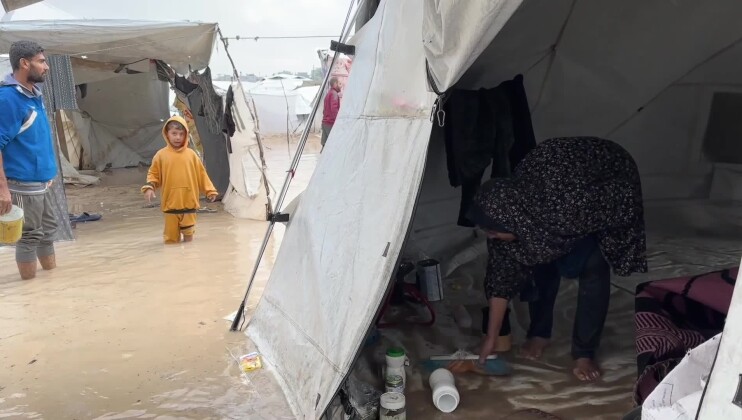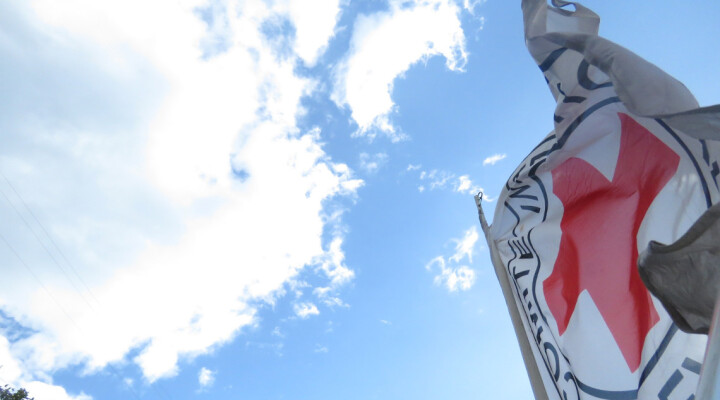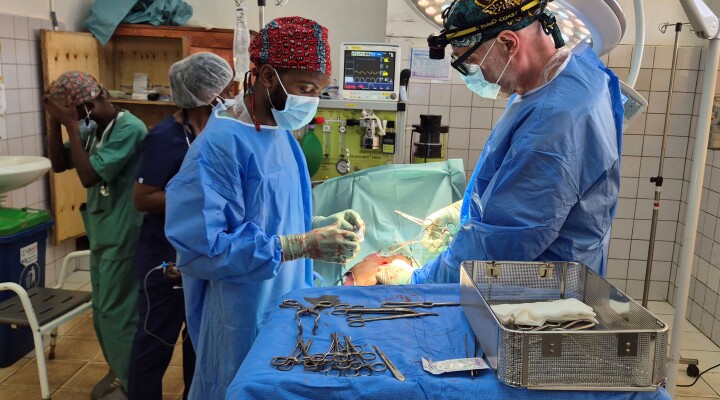Nigeria: “We go to bed hungry sometimes for two to three days”: Hunger deepens as farmers in conflict-affected northeast struggle to survive
Every morning, a procession of villagers make their way from Dikwa, a town in northeastern Nigeria to farmlands, often several kilometres away, where they are able to cultivate crops for a few hours a day. Subsistence farming is the only way many can survive in the northeast, where jobs are scarce and once-thriving markets closed due to the 16-year conflict.
Among those who venture out each day, is Churi Ibrahim, a 70-year-old farmer, who struggles to feed his family of ten with the food he grows. The small amount of money he makes from tailoring work at night is far too little to buy enough food, because prices are so high. “We can only leave for the farms by 10 a.m. and must start returning by noon. Some people trek up to three hours to reach their farms,” he says.
Modu Umar, a community leader, explains that hunger is causing widespread illness. Hospitals are filled with adults and children suffering from diarrhea and other ailments due to lack of food and medicine. “Farming is the only solution to hunger. Right now, we face severe food shortages. People must travel far to collect firewood to sell, just to afford food,” he says. Sadly, these accounts are not limited to Dikwa but are echoed by communities across the northeast.
Recent flooding that destroyed crops and the widening humanitarian funding gap which is causing a drastic decrease in aid, are hitting an already vulnerable population hard. Across conflict-affected areas of northeast Nigeria, more than 3.7 million people face food insecurity *.
To help address these challenges and promote long-term resilience, the International Committee of the Red Cross (ICRC) has initiated an agricultural assistance programme that supports both rainy and dry season farming. This year alone, more than 21,000 farming households have received seeds tailored to local conditions, along with seed planting tools to reduce labour burdens and improve efficiency.
Diana Japaridze, head of the ICRC office in Maiduguri, says there are plans to provide solar-powered irrigation pumps that will allow farmers to produce food even during the dry season. But the coming months may bring particular hardship: “We are expecting a difficult time during lean season that typically takes place between July and September. This is the time when food stock is consumed and is limited. So eventually, people are dependent on purchasing food,” Japaridze says. “Unfortunately, conflict-affected populations have limited purchasing power. That is why they are forced to limit their daily intake.”
Bintu Konto, a mother of five who lost her husband 10 years ago, collects firewood with her children and plants crops in a field about an hour and a half’s march down a dusty road. “We go to bed hungry sometimes for two to three days,” she says. “And when God provides something, you will get to eat.”
For further information, please contact:
Aliyu Dawobe, Damaturu (English/Hausa): adawobe@icrc.org | +234 803 953 4881
Khatija Nxedlana, Abuja (English): knxedlana@icrc.org | +234 703 595 4168
The International Committee of the Red Cross (ICRC) has been working in Borno State, northeast Nigeria since 2012. Established in 1863, the ICRC operates worldwide helping people affected by conflict and armed violence and promoting the laws that protect victims of war. A neutral, independent and impartial organization, its mandate stems from the Geneva Conventions of 1949.
* According to the latest Cadre Harmonisé report, the Borno, Adamawa, and Yobe (BAY) States account for 15% (3.7 million people) of Nigeria’s food-insecure population: Latest food insecurity figures reveal persistent threats to the lives of 30.6 million people | FAO in Nigeria | Food and Agriculture Organization of the United Nations
Length: 05:53
Location: Dikwa, North East Nigeria
Date Of Filming: 02 & 03 /07/2025
Copyright: ICRC access all
On Screen Credit: ICRC written or logo attached to story
00:00 -- 00:09
Various - young boys driving a heard sheep out of Dikwa town.
09,080 --00:28
Various - masses of people walking out of Dikwa town to attend to their farms outside of the security trenches
00:28 - 00:37
Various - masses of people walking out of Dikwa town to attend to their farms outside of the security trenches
00:37,240 -00:50
Various - Bintu Konto and son leaving home heading out of Dikwa village towards their farm.
00:50,240 - 00:57
SOUNDBITE Bintu Konto : We go to bed hungry sometimes for two to three days. And when God provides something, you will get to eat.
00:57 - 01:07
Various - masses of people walking out of Dikwa town to attend to their farms outside of the security trenches
01:07 - 01:16
SOUNDBITE - Modu Umar, head of the farmers’ association in Dikwa - Farming is the only solution to hunger. Right now, we face severe food shortages. People must travel far to collect firewood to sell just to afford food.
01:17 - 01:26
Various - Bintu Konto and son leaving home heading out of Dikwa village towards their farm.
01:26 - 01:38
SOUNDBITE Bintu Konto : In our entire neighborhood, I am the only one who goes out that far.
01:38 -01:52
Various - Bintu Konto and son during SOUNDBITE - emotional moment.
01:52 - 02:00
SOUNDBITE Bintu Konto : When you come across bushy area you will just have to be afraid, but at the end of the day you will just have to take the risk and continue on.
02:00 - 02:19
Various - people returning home from their farms. Some women carrying firewood back home.
02:19 - 02:39
SOUNDBITE Bintu Konto : What the firewood fetches can range from one thousand naira or eight thousand naira. You can keep some for your cooking and sell the rest with which you can buy food items and grains.
02:39 - 02:54
Various - Churi Ibrahim - 70-year-old farmer digging
02:54 - 03:07
SOUNDBITE Churi Ibrahim - 70-year-old farmer : Now, it’s very difficult. We can only leave for the farms by 10 a.m. and must start returning by noon. Some people trek up to three hours to reach their farms.
03:07 - 03:16
Churi Ibrahim - 70-year-old farmer digging
03:16 - 03:22
SOUNDBITE Bintu Konto : The reason why our farm is so far away is that, there are no farms available close by. Which is why we have to go even though it is far away.
03:22- 03:25
At the end of the day you will just have to go because you have no choice but to farm.
03:26 - 03:29
Because after the rainy season if you did not farm you will not get to have to eat.
03:29 - 03:34
For this reason even if it is meagre, you just have to engage in farming.
03:34 - 03:51
Various. Children with malnutrition symptoms being attended at a triage in X clinic, Dikwa village.
03:51 - 04:03
SOUNDBITE : Diana Japaridze, Head of the ICRC sub-delegation in Maiduguri. : We are expecting a difficult time during lean season that typically takes place during July, in between July, July, September. And this is the time when food stock is consumed and is limited.
So eventually, people are dependent on purchasing, purchasing food. Unfortunately, conflict affected population have limited purchasing power.
That is why they are forced to limit their daily intake. Eventuallyually, this will impact food and nutritional security.
04:31 - 05:29
Various. Market shots in Dikwa.
05:29 -05:53
Various - Women carrying firewood returning home from their farms outside the Dikwa town.
Ends



